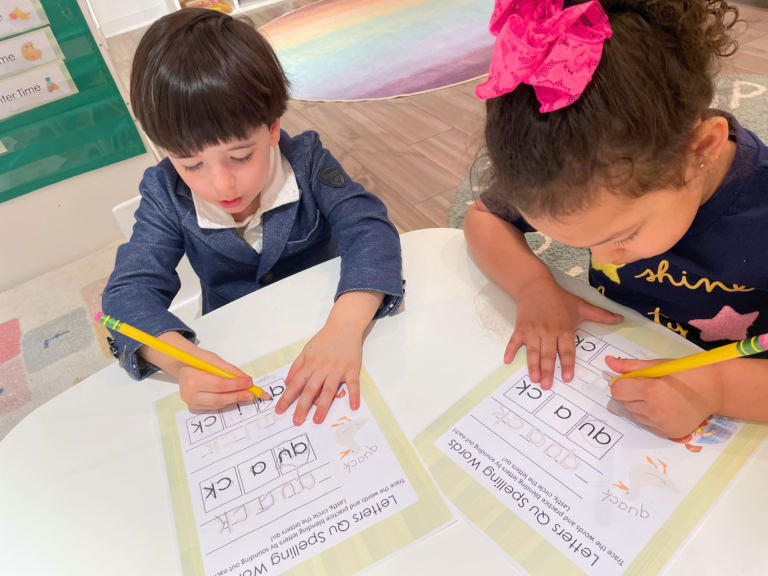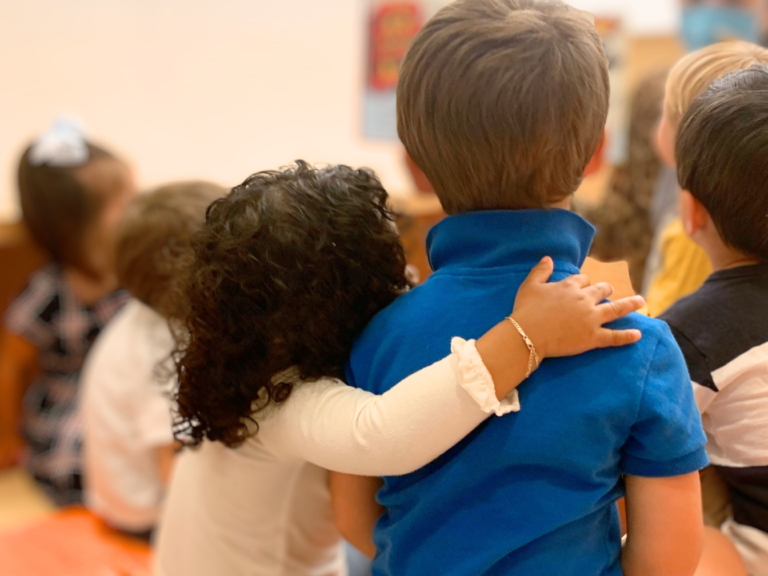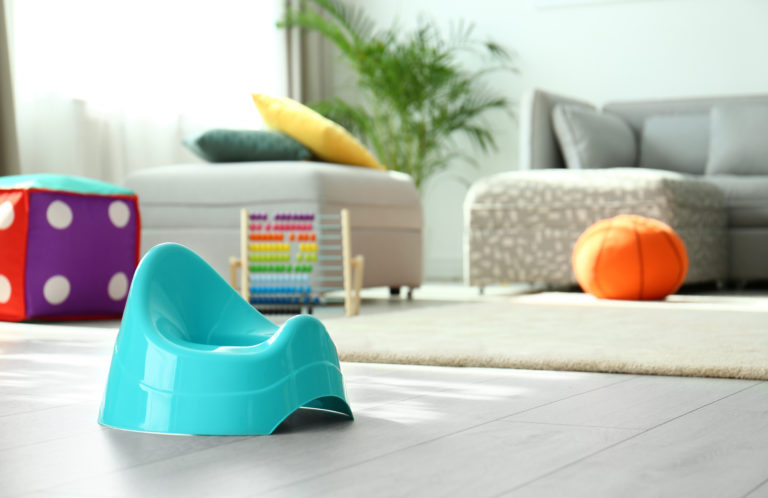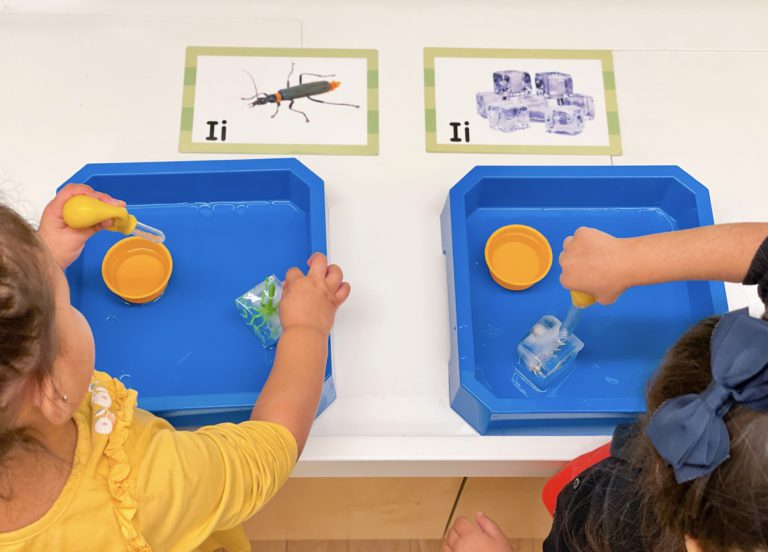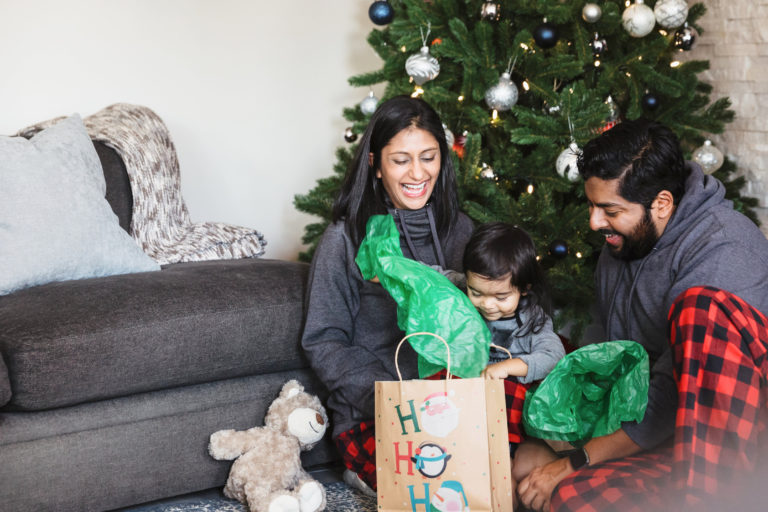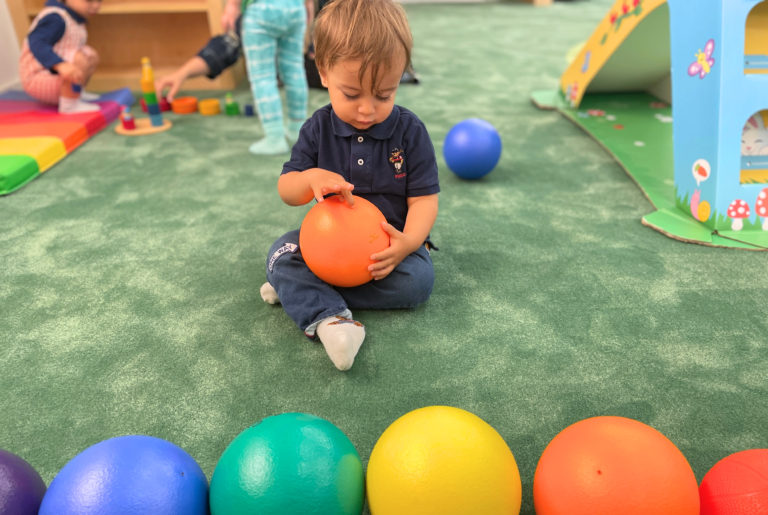Helping Your Child Cope with Anxiety
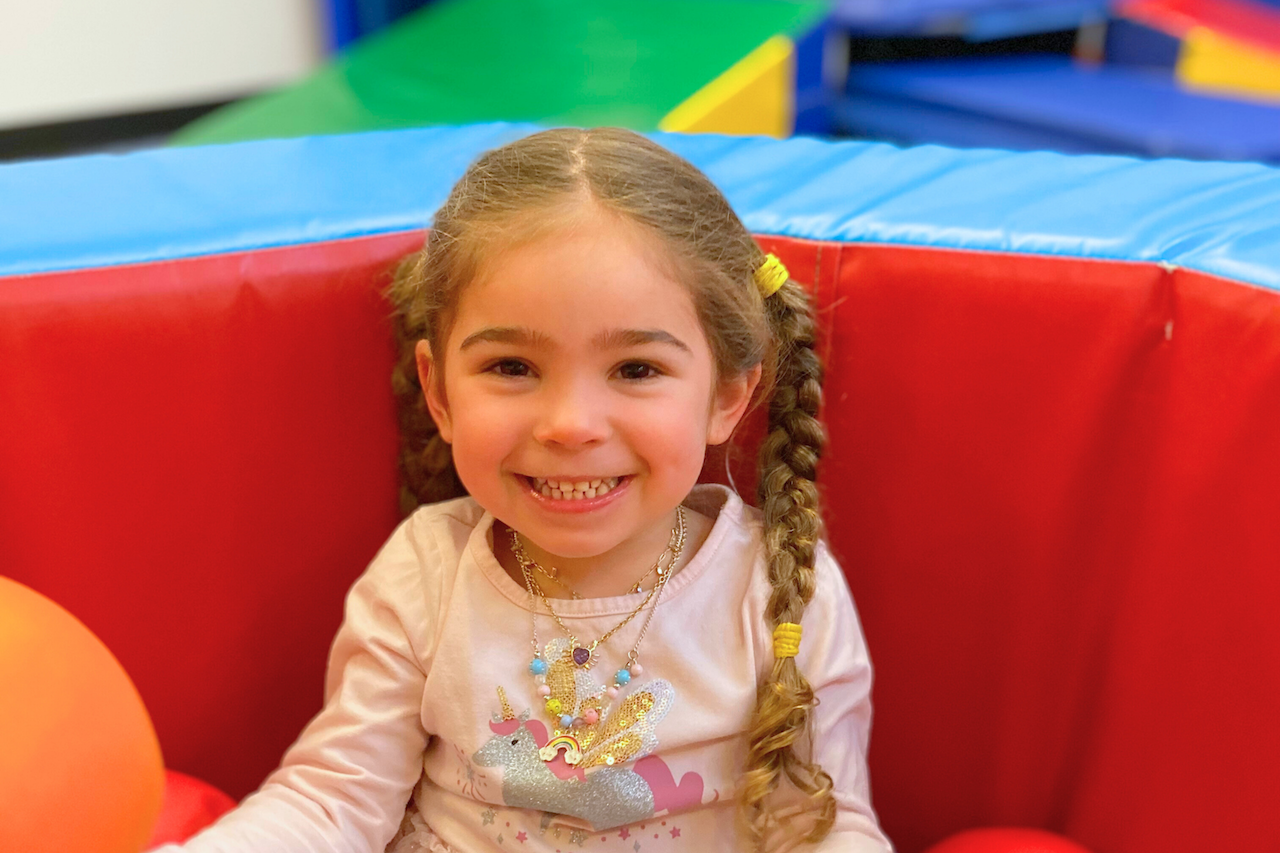
Like other big feelings, anxiety is something your little one will experience at some point. Whether it’s due to separation, being around new people, or an unexpected life event; anxiety affects little ones the same ways it does adults. Since 2020, an increasing number of people of all ages have dealt with anxiety. Being back in the classroom the past couple years, I’ve seen little ones getting overwhelmed by big groups of people, loud classrooms, and being separated from their grown-ups. The best way to combat anxiety is learning how to take care of ourselves when we feel those anxious feelings. Teaching your little one these tips can help them with their social emotional learning and continue to process big emotions as they grow up.
Here are some parenting tips to help your little one cope with children’s anxiety:
Anxiety is Temporary
It is so important to remind ourselves and our little ones that anxiety is a feeling and it is just for now. Just like being scared or sad, the feelings come, we work through them, and they go away. Let’s say your little one has a hard time with drop-off at school or day-care, but when you arrive for pick-up, they are all smiles — it may even be hard to get them to leave. Talk about what made them happy while you were away and remind them of those happy moments before each drop-off; and slowly but surely, they may have an easier time saying “see ya later” as they continue into their social emotional learning journey.
Anxiety is in Your Body
Anxiety is most commonly a physical sensation, because it is a reaction to stress. We can experience fast heart rates, or feel tense and stuck, and one way to combat those feelings is by moving our bodies. Sometimes we just need to “wiggle it out” as we like to say at Playgarden Prep. One great parenting tip is to simply move your body — this can help move through those feelings! Showing your little one how is a great way to teach them about self-regulating. If they let you, take their hands and gently move their arms up and down, side to side, just getting them moving. If they respond well, see what other movement they’re interested in — throw on some music and dance it out. Our brains and bodies are so interconnected that you will soon find both you and your little one have moved through the children’s anxiety and are ready to take on the day.
Affirmations for Anxiety
If you have an anxious little one, affirmations can be a helpful social emotional learning tool to use together. When you notice them starting to show signs of experiencing children’s anxiety, check in with them. They are more likely to share their worries or anxiety with you if you ask. If you’re at home, find a comfortable spot on the couch or in a calm corner. Meet them at eye-level and invite them to place their hands on their chest over their heart. Take a few deep breaths with them, and if they are able, encourage them to repeat a few of these phrases:
I am safe.
I am loved.
I am brave.
I am strong.
I can do anything.
Feel free to create your own affirmations as well!
Practice and consistency is key when dealing with children’s anxiety. Find what works for you and your little one and take it one day at a time.
Popular


Hi, I'm Miss Julia!
Miss Julia has been an early childhood educator for 5 years, with over 10 years of experience working in childcare. She has been teaching at Playgarden Prep since 2017, and is happy to share ideas on some of her favorite early education topics with you! Miss Julia has a BA from UC Irvine, and uses her experience in performing arts to inspire little ones every day in her enrichment classes at Playgarden. In her free time, Miss Julia loves enjoying nature, cooking, and creating with friends.

